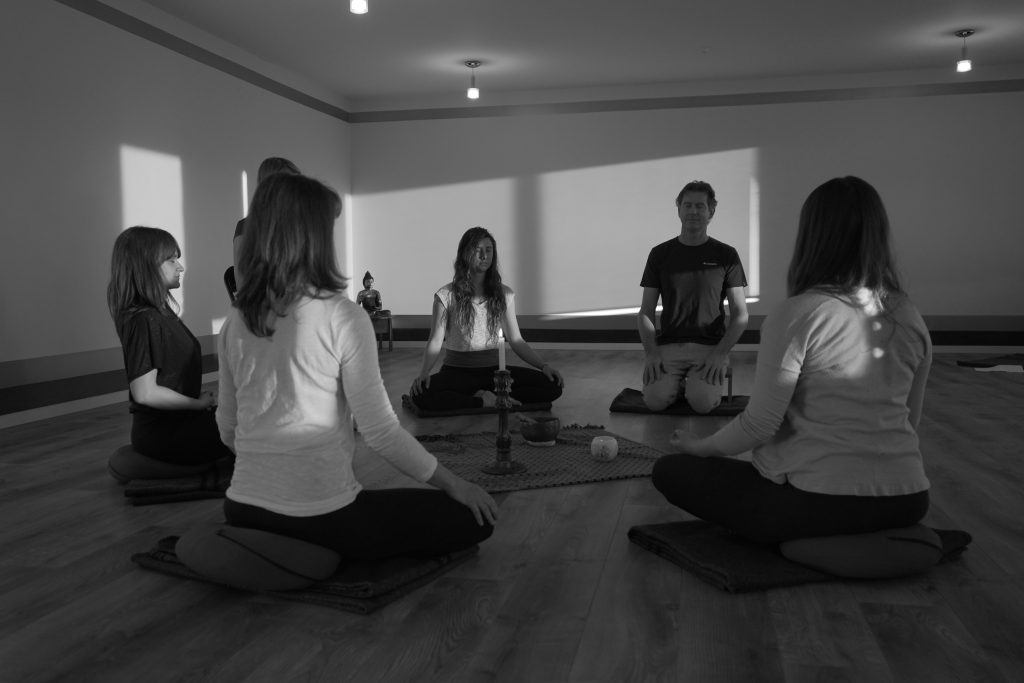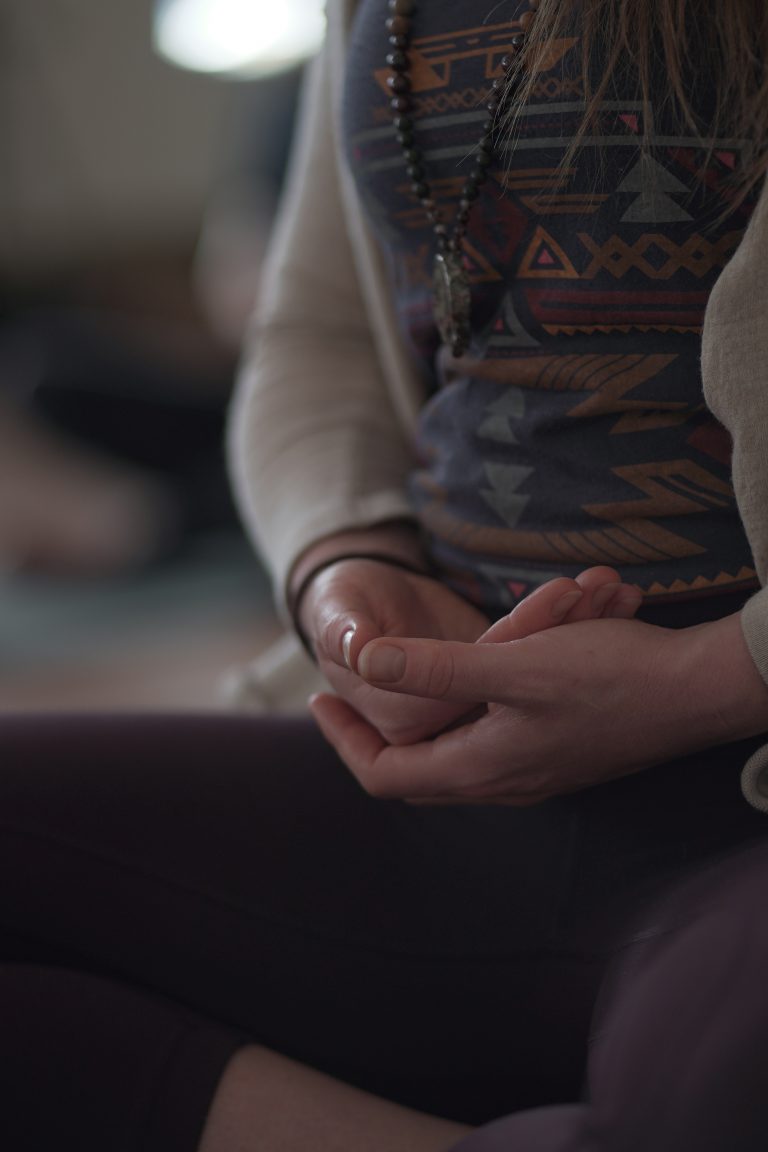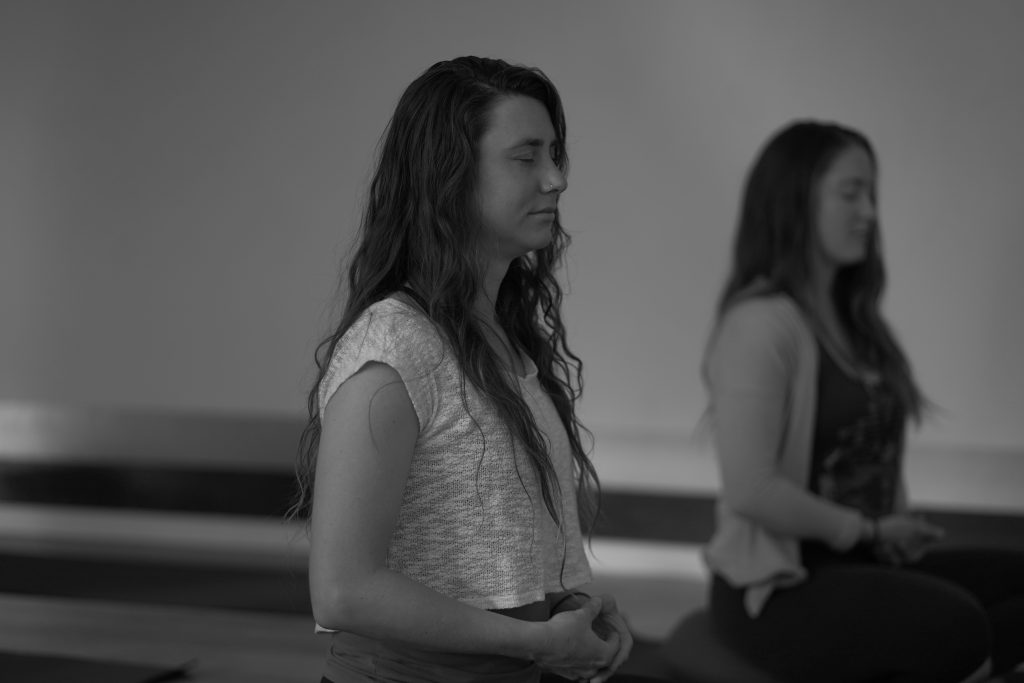
Meditation Teacher Training
Experienced yoga teachers understand the importance of meditation as part of a complete yoga approach, recognising the profound effect regular meditation has on their own yoga practice, and the transformative impact on the students themselves.
Meditation Teacher Training
Traditionally and today, the practices of yoga and meditation have always been interrelated. Meditation is part of the greater set of yoga practices we know as the 8 limbs of yoga. Meditation cultivates awareness, along with clarity and calmness – aspects that all practitioners of yoga aspire to. In contemporary times meditation is often used as a therapeutic tool to calm the mind, traditionally its purpose is primarily as a pathway to spiritual enlightenment.
By regularly bringing the principles of meditation into asana classes, teachers can move students beyond just the physical benefits of yoga asana. This more integrated approach is where the real holistic, transformative change occurs and is often what students are searching for.
While anyone can attempt to meditate, it takes skill and dedication to progress and to continue to progress, which is where the art of teaching meditation comes in. At The Yoga Transition, we focus on the art of teaching meditation as part of a yoga class, but also as a part of life, using meditation as a way to examine and explore the nature of the mind and the nature of our life experience.
The ability to teach meditation is one of the core elements The Yoga Transition addresses as part of The Yoga Transition Path, covering how to incorporate meditation into classes and meditation principles into asana.
Contact us to find out more.
What is the relationship between meditation and mindfulness?
In the practice of yoga, meditation and mindfulness are closely related; and yet worlds apart.
In a contemporary practice, mindfulness is most often used therapeutically to lessen reactivity. On the other hand, meditation, in its truest sense, is a holistic, transformative practice, which seeks to integrate the body, mind, heart, and spirit. This is of course the definition of yoga – union. The result is a complete meditative experience that mindfulness is only a component of.
Just as yoga is not just meditation, meditation is not just mindfulness. Mindfulness is a starting point on the path towards the true transformative heart of meditation. Mindfulness is a key part of an effective asana and meditation practice, as it cultivates the ability to be observant. But this observance is only one of many qualities foundational to meditation.
In summary, meditation and mindfulness are interlinked techniques and are used in conjunction with each other to progress and deepen a practitioner’s sadhana, their spiritual practice. Both of these practices have a deep impact on the way in which we relate to events and the world around us, cultivating a more holistic, centred yoga experience.
Does meditation help with anxiety and stress?
Anxiety and stress have as their roots the reactivity of the mind. Both these conditions are where the mind has been overwhelmed by a particular stimulus or event and the person has been triggered into a state of reactivity.
This state of mind then triggers a physiological response where the nervous system goes into fight or flight – the sympathetic NS response. Often this sympathetic response is accompanied by an unpleasant sensation in the body, which includes the release of adrenaline and cortisol. This unpleasant sensation in the body often results in a reactive thought where people think “I don’t like this”, which in turn continues to activate the fight or flight response; and so the cycle exacerbates itself and the anxiety or stress response snowballs.
Someone who is prone to anxiety will often feel out of control when an anxiety-inducing situation arises. When these intense, sometimes overwhelming feelings occur, seasoned meditation practitioners can hold their ground, their centre, staying non-reactive to the arising anxiety and accompanying unpleasant sensations in the body. This doesn’t mean that they will never feel anxious again, but rather demonstrates the practiced skilfulness about not plugging into the emotion and amplifying it. Through cultivating awareness, the meditation practitioner is able to create space between themselves and the reactive tendencies of the mind; to not become identified with the difficult emotion, but rather to remain centred and observant.
Meditation is an empowering practice for those suffering from anxiety and stress. Meditation can be a standalone practice or an integral part of a yoga class.


Why consider mentorship?
Mentoring with a master teacher provides you with a clear path to professional development. You will receive personalised guidance on topics ranging from your personal practice, to your teaching skills, to how to move forward with your yoga career.
Our master teacher Susan Allen has over two decades of yoga practice, teaching, and guidance, and credits her most meaningful growth to the gift of mentoring from the world-class master teachers she has been fortunate enough to study with over the years.
Susan has run multiple yoga studios, teacher trainings, immersions, and retreats, and brings all of this experience to her mentoring. Harnessing her practical and technical skillset, she understands and teaches yoga pragmatically, creating a safe and collaborative space for personal development. She disseminates what she has learnt in easy to digest modules which cover both personal and professional growth goals.
Susan has been practising meditation for 35 years and has a wealth of knowledge to share about different styles of meditation, from traditional vedic meditation to Tibetan Buddhist practices. She has a keen interest in guiding teachers how to incorporate the practice of meditation into their asana classes.
Develop your yoga teaching style with mentorship
Your initial teacher training would likely have touched on the basic principles of meditation, likely while also covering off mindfulness in the same short breath – but it’s impossible to gain a deep understanding of such a broad topic in a short amount of time. In addition to educating how best to teach meditation within a yoga studio setting, there are a vast number of other teaching elements we help our professional yoga teacher clients develop.
At The Yoga Transition we celebrate individuality through:
- Steering your practice and teaching in the direction that most interests you
- Encouraging you to discover your unique voice
- Guiding you to develop a teaching methodology that has both integrity and individual authenticity.
Once you have completed your initial teacher training, contact us to find out how our mentorship guidance program can bring you to the next level





